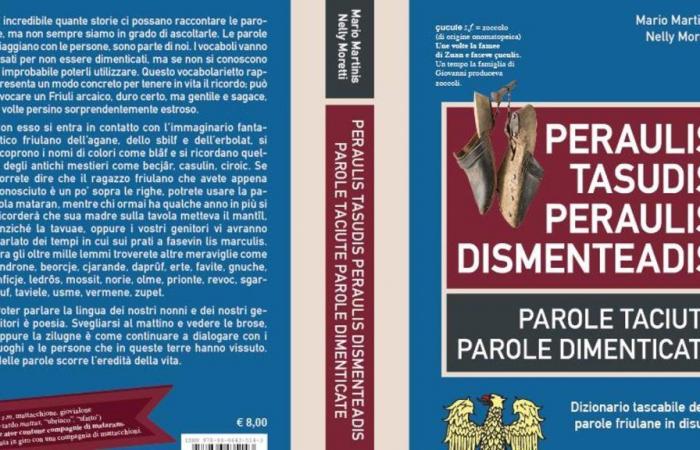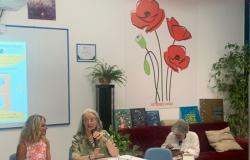On 29 June 2024 it will be released on newsstands together with our newspaper “Peraulis tasudis, Peraulis dismentaeadis” (128 pages, price 7.90 euros, Editoriale Programma).
Today’s process of cultural loss and impoverishment of linguistic structures affects even the most advanced world and Friuli is not far from losing its language and identity according to the most recent sociolinguistic investigations or the simple observation of the cultural and linguistic degradation that affects it.
According to Mario Martinis and Nelly Moretti, one of the ways, albeit indirect and parallel, to counteract this danger is to recover and use the beautiful Friulian spoken by our grandparents and parents by collecting and re-presenting words that have now fallen into disuse. Thus was born the beautiful volume Peraulis tasudis, Peraulis dismentaeadis, or Silent Words, Forgotten Words published by Editoriale Programma, on sale from tomorrow with the Messaggero Veneto.
It is an “emergency manual”, a linguistic handbook to be used by anyone at any time and for this reason made accessible to all. In this book, more than a thousand words that are now disused or little used in everyday language have been recovered, explaining their origin (often from the great Latin mother tongue, but also from German, Slavic, Spanish, French, even Arabic) and reporting at least one example for your better understanding. Even the accurate and learned appendix presents useful teaching tools for rapid consultation for the more “affective and reasonable” use of marilenghe, which contains indexes and repertoires on the names of animals, flowers, plants, trees, colors and then idioms and “Italianisms” not to be used.
According to the two authors, experts in the Friulian language, words travel with people, they are part of us. Vocabularies must be used so as not to be forgotten, but if you do not know them it is unlikely that you will be able to use them. Thus the dictionary represents a concrete way to keep alive the language of our fathers that can evoke an archaic Friuli, harsh certainly, but kind and sagacious, sometimes even surprisingly whimsical.
With Peraulis tasudis, Peraulis dismentaeadis we discover the names of colors such as blâf, jalin or pantianiç and remember those of ancient crafts such as becjâr, casulin, ciroic. If you want to say that the Friulian boy you just met is a bit over the top, you can use the word mataran, while those who are now a few years older will remember that his mother put the mantîl on the table instead of the tavuae, or your parents will have told you about the times when on the meadows at phasevin lis marculis. Among the over a thousand entries you will find other wonders such as androne, beorcje, cjarande, daprûf, erte, favite, gnuche, inficje, ledrôs, mossit, norie, olme, prionte, revoc, sgarduf, taviele, usme, verrmene, zupet.
Being able to speak the language of grandparents and parents is poetry. Waking up in the morning and seeing the brose in the fields is like continuing to dialogue with the places and people who have lived in these lands. The legacy of life flows in words.






